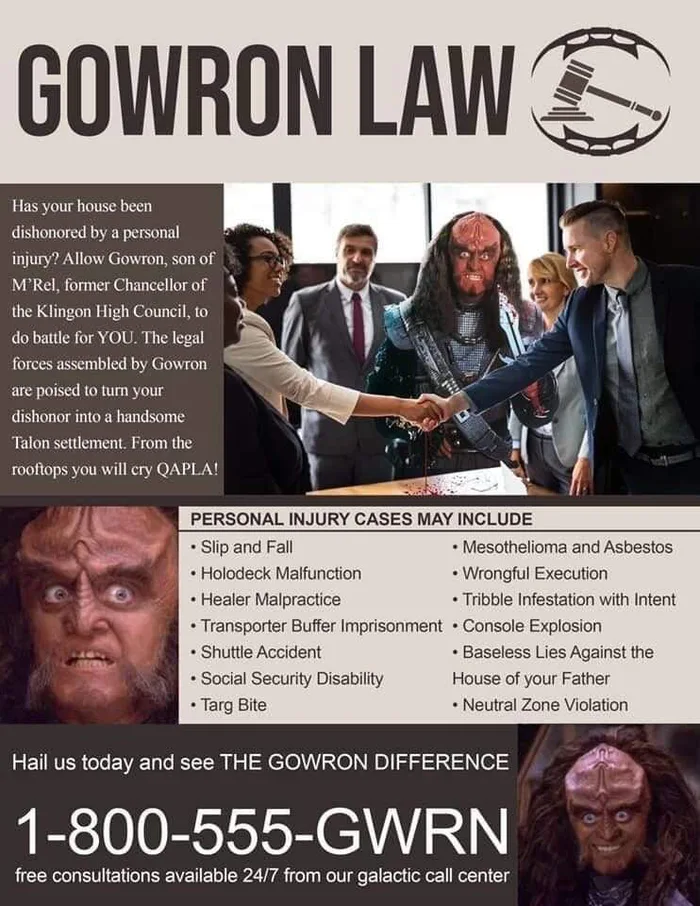Thanks for the clarification!

(The question, of course, is when does general meta/worldbuilding veer into story ideas XD I gess I shall Proceed With Caution.)
I've been thinking about this issue of holo-sentience a whole lot (mostly because of Rios's holos) and I absolutely agree with a ton of points you guys made.
There are probably technical pre-requisites that make sentience more likely. Runtime, for one. The Doctor was in near-constant use after
Voyager stranded in the Delta Quadrant, something his programme was never designed for. And the other Mk I EMHs in the mines were likewise used for non-stop mining work. That probably had something to do with their gaining enough "sentience" to develop an interest in reading
Photons Be Free, as is implied by the ending of "Author, Author". And Fair Haven had been running continuously for a long time when the characters became self-aware.
And then you have cases where the holograms got allotted way more processing power than they should have been (like Moriarty). Not to mention all the home-brew code updates and changes Tom and others kept making to Fair Haven. So there are special technical circumstances that seem to be necessary to achieve sentient, or at least truly self-aware holograms.
But I don't think there is a very clear line dividing sentience and non-sentience in these cases.
It might be more a case of... a list of diagnostic criteria. "If at least 60% of the following apply, your AI might be sentient." But it's a gradient, with a fuzzy zone somewhere in the middle.
It's exactly like you said: establishing sentience, especially if you don't want to veer into te realm of the metaphysical, is extremely hard and requires a high burden of proof.
If you look at the shows, there are some holograms that are probably completely incapable of attaining sentience barring
massive interference. The Index in the Starfleet Archives, for example, will never come to life, no matter how long they use it for, because it's essentially a hopped up version of Siri. There is simply no way, without the addition of masses of code, for its programme to grow beyond the pre-set bounds.
I would imagine it's a bit more complicated with holodeck NPCs. If they are given enough computing power, enough continuous runtime with cumulative experience and memories, enough quirky additions to their code, or all of the above, in rare cases they
can achieve sentience. But they can also be made to
look self-aware (see Vic Fontaine) and things can start to get a bit blurry around the edges.
Emergency Holograms, on the other hand, I would expect to be most likely to attain sentience, since they are incredibly sophisticated. They need to be self-aware, they need to have enough social competence to interact with an organic crew in an emergency (not a great time for ill-timed jokes and miscommunications), they need to be able to improvise and access knowledge outside their narrow precepts, etc.
(Say, for instance, an EMH finds themselves in a partially-collapsed sickbay, the replicators are down, and now they need to do triage. It would be pretty useless if your
Emergency Medical Hologram would just stand there and go "No adequate antiseptic is available. Please provide the necessary supplies to procede." They need to be able to access, say, an engineering database to figure out that you can easily use that sonic steel brush to turn it into a crude but effective disinfectant.)
So Emergency Holograms are probably never that far from attaining sentience, if you let them. And the question then becomes, what steps are being taken by the Federation so people won't let them? Because you don't want to accidentally end up with hundreds of sentient beings that are confined to ships and are owned(???) by Starfleet or by private captains.
I really liked the idea of the Moriarty Protocols for holodeck characters brought up in the books, and the way
Sirena's EH's start off very much walled off from one another (something they clearly overcome with time).
There are so many amazing story ideas and fascinating philosophical quandries here!



